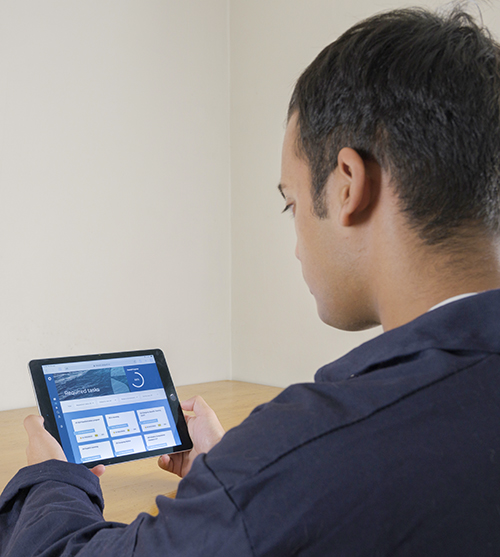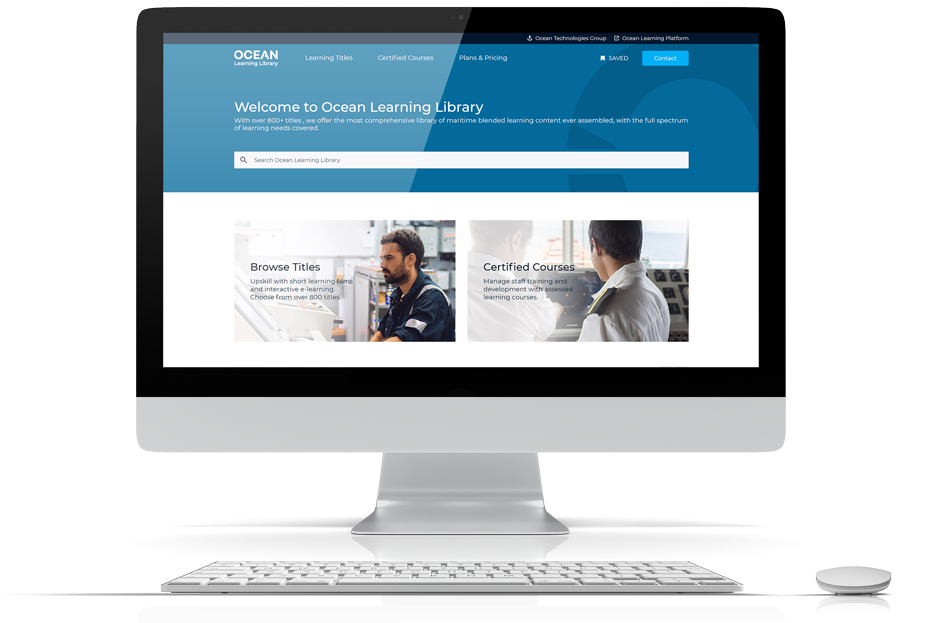Mobile Learning Strategies for Improved Performance
The maritime industry is undergoing a digital revolution. New technologies and fuels demand a future-proof workforce equipped with the latest knowledge. Traditional training methods can be rigid, time-consuming, and can struggle to match the pace of change
.
Mobile learning offers a powerful solution. This flexible and engaging approach empowers seafarers to learn quickly on their own terms, directly addressing crew shortages and preparing them for the future of the maritime industry.
Empowering Learning Anytime, Anywhere
Smartphones are crucial in modern life, impacting work, social interactions, everyday activities, routines, and tasks. People increasingly rely on smartphones for communication, information access, and various applications.
According to Statista, during the first half of 2023, global users generated almost 77 billion downloads of mobile apps. In the second quarter of 2023, internet users spent six hours and 41 minutes online daily.

Computer-based training and remote learning are established components of most training and development strategies, used alongside and, when optimal, in place of in-person training. Through the combination of various mediums, from live classes and webinars to web-based e-learning platforms and app-based mobile applications, seafarers can benefit from a blended learning experience that enables on-the-go training that aligns with their working life and lifestyle. App-based learning offers several benefits, especially in the context of maritime training:
- Accessibility onboard: Opportunities for traditional learning onboard can be limited by the availability of equipment and the number of computers with training systems installed. Mobile learning provides an adaptable solution, allowing seafarers to access training materials directly from their devices, overcoming constraints posed by onboard resources.
- Accessibility offboard: As the maritime industry advances, the demand for timely and location-independent training that aligns with the dynamic and mobile nature of seafarers’ careers increases. Mobile learning enables learning while on the move, travelling or during other activities outside a traditional training centre.
- Learner engagement: Mobile learning caters to the preferences of an inherently mobile-native workforce. By aligning with how seafarers naturally engage with information, mobile learning increases learner engagement and retention, making training more effective.
- Self-paced learning: Mobile and app-based learning encourages seafarers to be self-reliant and take charge of their professional development at their own pace. Whether spending extra time on difficult areas or progressing quickly through familiar material, this individualised approach fosters a comprehensive understanding of training material.
Why Mobile Learning Matters in Maritime
In the maritime sector, the challenges of recruiting and retaining seafarers, particularly among the younger generation, are notably apparent in a world dominated by mobile natives. Against this backdrop, Drewry’s 2023/24 Manning Annual Review and Forecast has revealed a 17-year high in seafarer labor shortages, prompting BIMCO and ICS to advocate for significant boosts in training and recruitment efforts. As over 90,000 officers may be needed in the world merchant fleet by 2026, the question arises: How can the maritime sector leverage mobile learning to address the expected shortage of skilled personnel and crew?
Insights from the SEAFiT Crew Survey, based on responses from 19,000 seafarers across 1,600 ships, highlight career development as a top concern. In response, app-based learning emerges as a valuable strategy, allowing seafarers to optimise their focus time through features like offline course downloads and flexible study hours. The survey results further highlight seafarers’ high levels of focus while at sea, with 60.8% expressing daily motivation and 68.1% staying focused on targets while onboard. Additionally, the app supports progress even without an internet connection or access to a company device, providing a comprehensive approach that aligns with seafarers’ concerns and preferences.
Overcoming Connectivity Challenges
Significantly, 91% of seafarers have emphasised the importance of a reliable internet connection, primarily for family communication. Offline learning, facilitated by apps like The OLP Mobile App, can help seafarers optimise their time during limited online access to prioritise family communication over online studies. This approach promotes a balanced lifestyle and enables seafarers to advance professionally during offline periods while maintaining meaningful connections with their families when online access is restricted.
Apps Elevating Seafarer Training
As the maritime industry embraces digitisation and apps play an increased role in enhancing efficiency and streamlining operations, it is no surprise that implementing app-based learning for seafarers is also a trend that is delivering real benefits.
Incorporating mobile learning into a maritime training strategy unlocks the flexibility to adapt to seafarers’ busy schedules rather than the other way around. This flexibility proves invaluable in more ways than one. Seafarers can upskill with the latest knowledge acquired through mobile learning apps supporting classroom or online learning. Whether in their cabins, travelling to assignments, or enjoying well-earned breaks, this adaptability drives engagement and turns passive learners into active participants eager to delve deeper into the material.
Mobile learning ensures training programs remain future-proof by offering continuous learning opportunities rooted in the latest information and training. Mobile learning apps simplify upskilling, preparing the crew for the evolving technological landscape and enabling them to close any skills gap that might arise
Adopting mobile learning isn’t just about convenience. Upskilled seafarers equipped with the latest knowledge work safer and more effectively, contributing to better vessel performance.

Discover how our app transforms seafarer training, making it easy and accessible for an engaging and flexible learning experience, offline and online, anytime, anywhere!
The maritime industry’s best e-learning content
Unparalleled breadth and quality of content. We offer the most comprehensive library of maritime blended learning content ever assembled.

